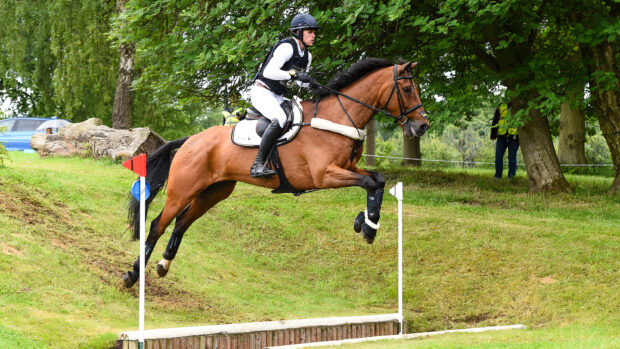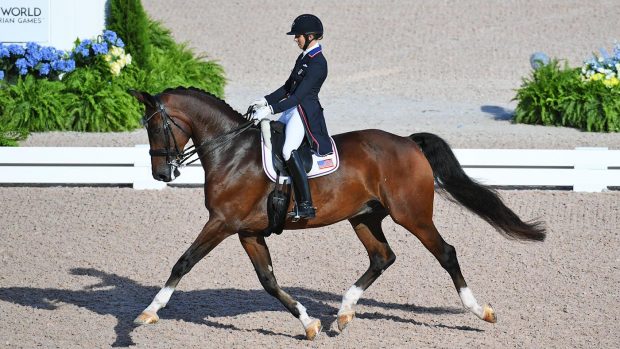Nearly half all grooms are not being paid in line with the law, a survey has found, which is pushing people out of the industry and is “not fair on those who do it right”.
The Equestrian Employers Association (EEA) carried out research as a “dip test” ahead of this year’s national minimum wage (NMW) increases, which will apply from 1 April.
More than 200 people completed the survey, the aim of which was to understand how overtime and time off in lieu (TOIL) of extra hours worked are treated, and how this affects the NMW.
It found that 45% of respondents are paid either at or below the NMW but are not being paid overtime or taking TOIL. This means that their real wages are below the legal minimum, even before the increase.
“What we found was what we expected, as we hear it anecdotally all the time,” EEA and British Grooms Association (BGA) founder Lucy Katan told H&H.
“The big issue is that employers may think they’re paying the NMW but the moment you take in the overtime, they drop below it, and that’s the point. They may think they’re doing the right thing but there’s the strict liability rule – it’s your responsibility as an employer to comply with the law.”
Ms Katan stressed that the BGA and EEA are “not the regulators” – the law sets out the minimum that must be paid, and not doing so is illegal.
“I must stress that there are some excellent employers out there, who are doing everything right, but there are those who seem to think they’re above the law,” she said. “Awareness of the NMW is increasing, and I think so is the aspiration to pay it, but I think we will see more and more false self-employment – employers telling staff they’re freelance when they’re not – and ‘working pupils’, when that isn’t a legally recognised term.”
Ms Katan said compliance with the law is the only answer, to protect employers and staff, and the industry.
Comments made in response to the survey included one groom saying she “comes home and cries with tiredness”. Others said they were told they work too many hours as they are “too slow”, or that they were expected to work at competitions on their days off. One said: “There is not enough money in the sector, so sadly thinking of leaving just to be able to eat properly.” The survey found 97% of respondents work more than their contracted hours every week, but more than 50% do not log extra hours worked.
“People come into the job, they’re fine for a bit, then they realise they’re working 12-hour days and not being paid the NMW,” Ms Katan said. “They wouldn’t work in a factory under those conditions; why does it happen in the equestrian industry? It almost always ends in tears and it’s unfair on the people who do it right.”
At an EEA webinar on 6 March, HMRC NMW senior officer Sakina Oxley said unpaid overtime is a major issue. She stressed that travelling as part of work, such as to competitions or training, counts as working time and should be paid as such, as should training required to perform the job.
“If you’re required to be there, you should be paid as such,” she said.
She explained that TOIL must be taken, or extra hours paid, in the current or following pay period, weekly or monthly depending on the pay period. Workers cannot opt out of the NMW legislation by agreeing to be paid less.
In a “simplified” example of the “cost of getting things wrong”, she cited a 24-year-old groom working an extra five unpaid hours a week, which would be worth £47.50 before 1 April. With £60 deducted weekly for livery, that groom would be judged to have been underpaid £107.50, per week.
“After a year, that groom is owed £5,590,” she said. “With five workers in your yard, you could be looking at underpaying by £27,950. If you’re subject to a NMW, there’s a penalty payable to HMRC of 200% of any underpayment. That’s £55,900. It’s eye-watering, and NMW checks can go back up to six years, and you may also be named and your details publicly given.”
EEA president Tullis Matson said: “These statistics are concerning, and not only do they highlight potential non-compliance with NMW legislation, there is also the issue of the wellbeing of our equestrian staff. Failure to pay overtime or to afford employees’ TOIL may cause their average hourly rate to fall below the NMW. This can be very costly for employers, and I would strongly encourage them to regularly check the hours that their employees are working.”
You might also be interested in:

Higher livery bills should follow April’s minimum wage increase

‘Too much work and too few people’: groom tries to find answers to solve staffing crisis

Subscribe to Horse & Hound magazine today – and enjoy unlimited website access all year round
Horse & Hound magazine, out every Thursday, is packed with all the latest news and reports, as well as interviews, specials, nostalgia, vet and training advice. Find how you can enjoy the magazine delivered to your door every week, plus options to upgrade your subscription to access our online service that brings you breaking news and reports as well as other benefits.




